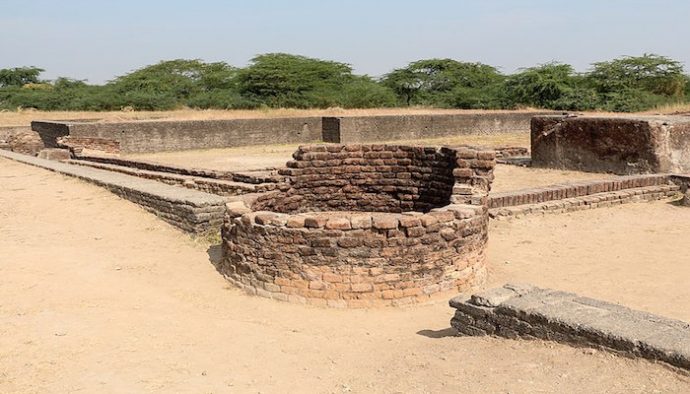There is no such thing as an ordinary moment.
True enough, most moments in the day seem ordinary. An ordinary commute. An ordinary meeting. An ordinary phone call. An ordinary interaction with your children. But they’re not.
Every moment is a potentially sacred moment because of the pervasive presence and purpose of God in us and in the world. If we only have eyes to see. Developing that kind of vision is, I think, part of what growing in Christ is like. It’s not mystical though; it’s not like the Holy Spirit is going to give us some weird kind of second sight. It’s more that as we walk with the Spirit, we find Him drawing us to a greater awareness of what He’s already doing. It’s a bit like what we find in John 4.
You might remember the scene. Jesus has led His disciples somewhere they don’t want to be. Not because it’s dangerous, but because it’s unseemly. He has marched them straight into Samaria, a place filled with the people no self-respecting Jewish person of the day would be caught dead associating with. But there they were.
And there Jesus was, sitting beside a well, and a woman approaches. Jesus asks her for a drink, which in itself was a controversial request. Not because of the water, but because Jesus made it. Of a Samaritan woman.
The woman herself is in fact surprised by the request. “Why”, she wondered aloud, “would a Jew ask a Samaritan for anything?” She knew good and well what Jews thought about Samaritans.
So the two begin to talk about water. Or at least she thinks they’re talking about water. What she doesn’t realize is that Jesus is elevating the conversation, and He’s drawing her in with Him:
“How is it that you, a Jew, ask for a drink from me, a Samaritan woman?” she asked him. For Jews do not associate with Samaritans.
Jesus answered, “If you knew the gift of God, and who is saying to you, ‘Give me a drink,’ you would ask him, and he would give you living water.”
“Sir,” said the woman, “you don’t even have a bucket, and the well is deep. So where do you get this ‘living water’? You aren’t greater than our father Jacob, are you? He gave us the well and drank from it himself, as did his sons and livestock.”
Jesus said, “Everyone who drinks from this water will get thirsty again. But whoever drinks from the water that I will give him will never get thirsty again. In fact, the water I will give him will become a well of water springing up in him for eternal life.”
“Sir,” the woman said to him, “give me this water so that I won’t get thirsty and come here to draw water” (John 4:9-15).
There are two levels of reality. There is the physical reality, and then there is the spiritual reality. And in this particular moment, the link between them is water. What could be more basic, more ordinary, more simple than that? And yet that basic, ordinary, physical entity means something more.
It’s like this with everything around us. A rock is not just a rock. The physical properties of a rock are meant to remind us of the sure, firm, stable character of God. The flowers in the garden are not just flowers. They point us to a God who loves beauty and also a God who cares extravagantly for His creation. Bread is not just bread. It reminds us that our true, lasting, and eternal nourishment comes from Jesus, who is the Bread of Life.
This the stuff of reality – and yet this is the stuff of a greater reality. The moments are all around us. The world is ripe with opportunities for us to be drawn into the greatness of God. If only we have eyes to see.
Did the woman in John 4? Not really. At least not yet. It took something more from Jesus to wake her up to the greater reality that was sitting at that well in front of her. Jesus drew her gaze upward by pressing on her point of pain:
“Go call your husband,” he told her, “and come back here.”
“I don’t have a husband,” she answered.
“You have correctly said, ‘I don’t have a husband,’” Jesus said. “For you’ve had five husbands, and the man you now have is not your husband. What you have said is true” (John 4:16-18).
Many times we have the same experience. We are fixated and focused on the physical, and the only way to wake us up from our slumber is through pain. As CS Lewis said, “Pain insists upon being attended to. God whispers to us in our pleasures, speaks in our conscience, but shouts in our pain: it is His megaphone to rouse a deaf world.”
But having been awoken to the constant reality of God’s presence, even in the seemingly mundane, don’t you want to stay awake? Maybe it can be so. Maybe, in the midst of everyday, we can pursue through God’s Spirit a greater awareness to His constant presence and purpose. And maybe water won’t just be water for us any more.
Subscribe to MichaelKelley.co
Never miss a new post. Subscribe to receive these posts in your inbox and to receive information about new discipleship resources.



